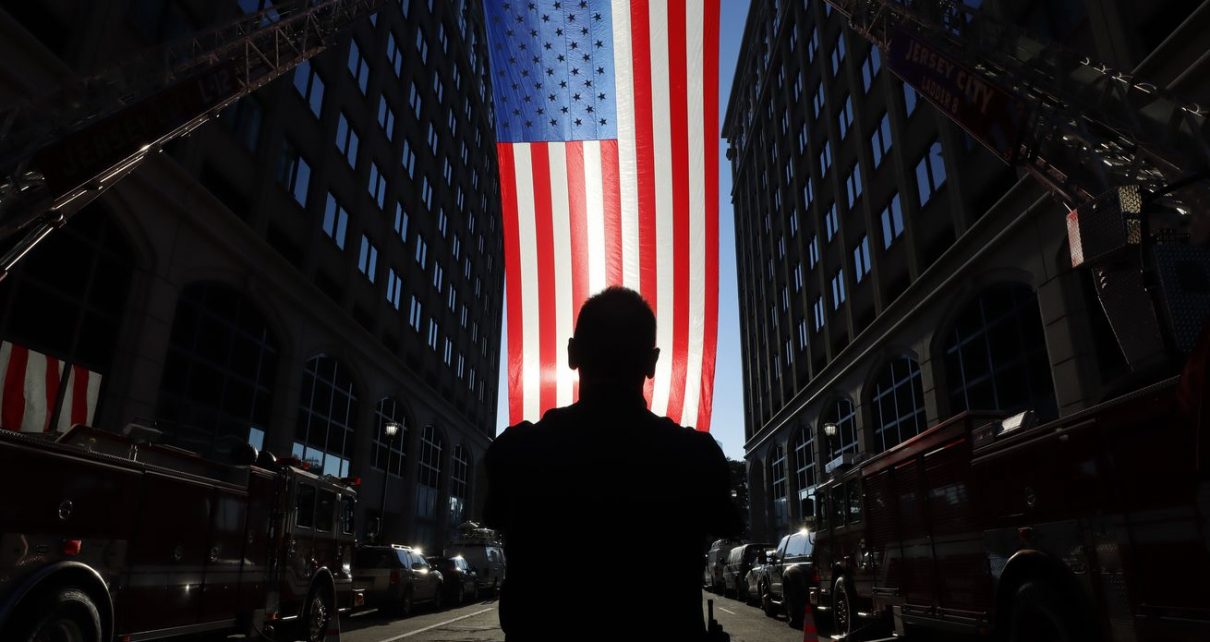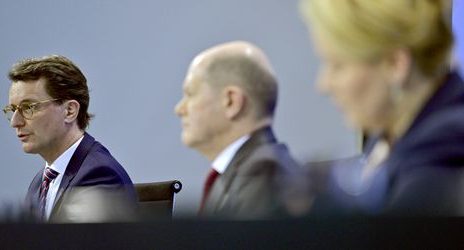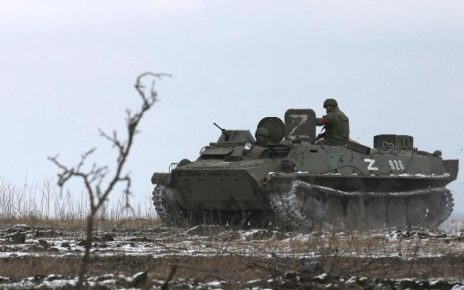
America is still a superpower. But in the face of Russia, the US is not almighty.
Russia has violated Ukraine’s sovereignty and international law. The US response has been economic: sanctions against Russia that are the largest ever and yet simultaneously unlikely to alter the shape of Russian President Vladimir Putin’s aggression.
So, how should we think about the US as a superpower in 2022?
It’s too early to draw broad conclusions about what war in Eastern Europe means for the future of America in the world. But there are enough clues to suggest that America’s power has limits, and indeed it always has. With the Soviet Union’s demise, the United States achieved global dominance for a brief unipolar moment. Then President George W. Bush squandered it through destructive (and expensive) misguided regime-change wars. Subsequent presidents gaslit the American public on progress in the Middle East in two conflicts that killed hundreds of thousands. Despite all those unforced errors, the United States remains a superpower, though the limits of non-military power have been exposed.
Thomas Pickering, who served as ambassador to Russia from 1993 to 1996, says that the “caricature” of America as a superpower has obscured the way most Americans think about how the world works.
As a career diplomat over four decades, Pickering witnessed America’s global position change from the Cold War to the breakup of the Soviet Union to the height of US supremacy at the turn of the millennium. “If your assumption is that a superpower can do anything, anywhere, anytime it wishes, without suffering the consequences of risk and uncertainty, then you misperceived the current world situation,” he told me.
A superpower is not infallible and omnipotent. The United States will not send in troops but has shipped hundreds of millions of dollars of weapons to Ukraine, shepherded an international coalition to institute wide-ranging economic sanctions, and encouraged tech companies and global organizations like FIFA and the Olympics to pursue the cultural isolation of Russia. And yet the United States, even with the world’s largest military and most robust economy, has not been able to induce Russia toward a different path. So, Putin continues to deploy his army toward Kyiv. And stopping that incursion does not appear to be something America has the power to change without risking nuclear war.
Superpowers need to pick their battles and engage in the same tough choices as any other country — especially when confronted with an adversary with nuclear capability, such as Russia. And rather than grasping the complexity of world affairs, many Americans have internalized the shibboleths that the US has never lost a war and that the US never compromises with enemies, especially during a conflict. Neither is true.
Both factors show that, as a country, the United States has failed to recognize its own constraints, some of which have long existed and are simply accentuated by Russian aggression.
How the unipolar moment ended
When the Cold War ended in the ’90s, the United States possessed unrivaled economic and military power. Scholar Francis Fukuyama claimed the “End of History” and former Secretary of State Madeleine Albright asserted the centrality of American exceptionalism in her coinage, “the indispensable nation.”
Some argue that that unipolar moment was overstated. “Look, the Americans suffered from hubris after the end of the Soviet Union,” said Joseph Nye, a Harvard professor who has written widely about American power. “The unipolar moment, I think, was always illusory.”
At the end of the Cold War, the US did continue to hold itself out as the guarantor of security. “The United States appointed itself as responsible for peace, security, and democracy in Europe,” Stephen Wertheim, a historian of US foreign policy at the Carnegie Endowment for International Peace, told me. In response to ethnic cleansing in Bosnia, the United States, through NATO, took military action against Serbia. The intervention was relatively limited, and the outcome of it was a successful projection of US might.
But that unilateral moment, real or imagined, was short-lived.
The terrorist attacks on September 11, 2001, were not what challenged that global supremacy, argues Wertheim. Rather, it was the 20 disastrous years of overreach in America’s response. The invasions of Iraq and Afghanistan exposed the limits of US power.
It could be said that Osama bin Laden understood something about Americans that they didn’t understand about themselves, namely that in reaction to heinous terror attacks America would overreact. With the invasion and occupation of two countries, the US would face two decades of blowback that tore at the country’s seams, that undermined democratic values through the war on terrorism at home and abroad. “Basically, with the Iraq invasion, we bite off more than we can chew, and we get a comeuppance,” said Nye.
The United States, mired in the Middle East and Afghanistan, continued to expand its role as global policeman through a network of US bases and military commitments that, counterintuitively, detracted from US power. It’s at this time that China began to rise as a counterbalancing force and Russia reemerged as a power in Europe.
“As the wars in Iraq and Afghanistan have obvious problems, we start to enter into a gradual period of decline in belief that the United States can reshape other societies,” Wertheim explained. “One problem is that this led us to make commitments to Ukraine. That means that we suffer a loss of prestige when we don’t make good those commitments.”
/cdn.vox-cdn.com/uploads/chorus_asset/file/23278776/AP21243718525587.jpg) Evan Vucci/AP
Evan Vucci/APNow that the US is caught in a potential face-off with a nuclear superpower, it is clear that perhaps the biggest failure of recent years has been the de-emphasis on arms control and the reduction of nuclear weapons worldwide. President Barack Obama, who in his early life was a staunch anti-nuclear activist, negotiated a new START Treaty in 2011, which curbs and monitors the US and Russia’s nuclear warheads. That’s now been extended to 2026, but more is needed. Over decades, Washington and Moscow allowed the arms control regime to decline, which culminated in President Donald Trump’s withdrawal from the important 1987 Intermediate-Range Nuclear Forces.
“Slowly, the structures that kept US-Russian military competition visible and predictable fell away,” said Heather Hurlburt, of the think tank New America. “At the same time, Beijing” — itself a nuclear power — “is building up its arsenal and making it very clear that it’s not interested in the US-Soviet arms control model.”
And other global crises, such as the pandemic, have exposed the inability of the US to lead as the indispensable nation.
The lesser-discussed dynamics that have undermined US power
Now the United States and Europe are waging an economic war against Russia. Underneath that, one can see America’s failure to imagine a post-oil economy or a globally urgent set of policies to address the climate crisis. Even as sanctions hobble Russia, the international market depends on Russian energy resources — with inevitable knock-on effects that damage everyone else.
The human rights rhetoric from American leaders has also deluded Americans. Most US presidents, with the exception of Trump, have spotlighted abuses worldwide. But they have not stopped the American way of doing hefty business with prominent abusers like Russia and China. Europe also got comfortable with this equation, as Maximilian Popp writes in Spiegel International. It’s a contradiction that has empowered authoritarians like Putin.
While the US has failed to act assertively on the global crises that it cannot avoid — climate and pandemic, to name only two — the diplomatic corps have also been hollowed out. Trump can be blamed for some of this disintegration but not all of it.
Europe has wondered whether the problem wasn’t only Trump but, at its core, America. This is especially the case after the chaotic withdrawal from Afghanistan last summer. “The Afghanistan thing got to a deeper worry that they have about American power,” said Jeremy Shapiro of the European Council on Foreign Relations. Though European leaders may be muted about this issue now, he told me that there are concerns about American competence because of polarization in Washington, “because the Republicans and Democrats are playing domestic politics with everything.”
US democracy and America’s capacity to promote human rights worldwide are connected, says Suzanne Nossel, the CEO of PEN America. “It’s now hit home at a much deeper level, that those two things are intertwined and that our democracy is seen as teetering and crumbling at the edges, that we cannot be an effective force for democracy globally,” she told me.
A country that has depended on its standing as an economic force and a democratic authority worldwide is at its weakest and most dysfunctional in half a century or more. Hurlburt calls it “self-inflicted decline.” The combined result is that the US is effectively not showing up.
It’s good that Biden has ruled out putting US troops into Russia’s new war in Europe, a potentially endless conflict for a country that took two decades to leave Afghanistan. That decision lays bare a reality that American foreign policy circles have too often ignored. As Hurlburt put it, “Gravity applies to us just like everybody else.”





